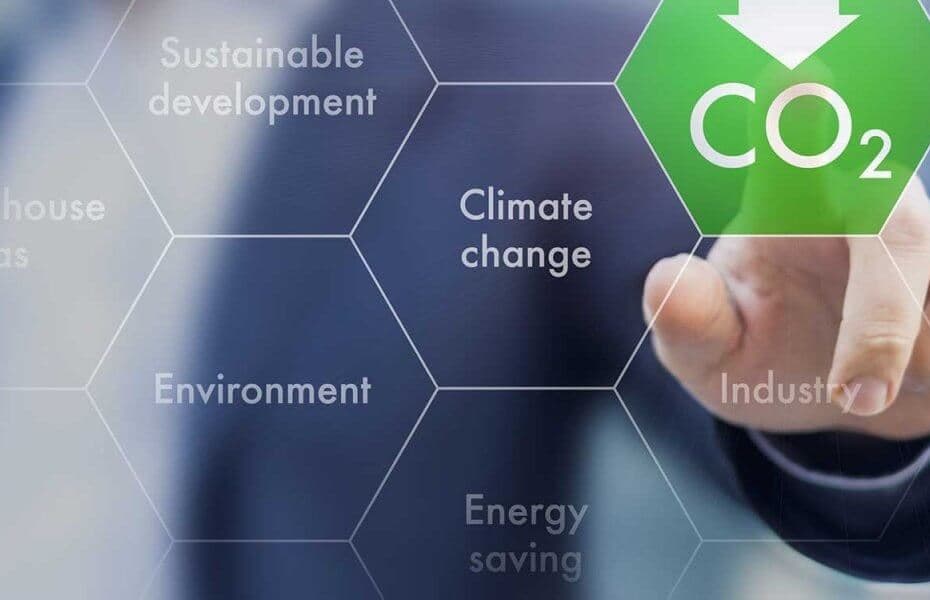In the face of accelerating global warming, the United Kingdom and Norway have emerged as key players in the international effort to combat climate change.
Both nations have recognized the urgency of addressing environmental issues and have collaborated on various joint climate policies and initiatives.
This article explores the collaborative efforts between the UK and Norway, highlighting their commitment to a sustainable future.
What are Climate Policies
Climate policies are strategic plans and actions implemented by governments, organizations, and institutions to address and mitigate the effects of climate change.
These policies aim to reduce greenhouse gas emissions, promote sustainable practices, enhance climate resilience, and transition to renewable energy sources.
Climate policies can include regulations, incentives, and initiatives designed to achieve environmental sustainability and protect natural ecosystems.
Joint Climate Policies and Initiatives
- Renewable Energy Projects
One of the most significant areas of collaboration between the UK and Norway is in renewable energy projects. Both countries have invested heavily in offshore wind farms, with the North Sea serving as a prime location for these developments.
The UK and Norway have shared technology, expertise, and financial resources to build some of the largest offshore wind farms in the world.
- Carbon Capture and Storage (CCS)
Another critical area of cooperation is Carbon Capture and Storage (CCS). CCS technology is vital for reducing carbon emissions from industrial processes.
The UK and Norway have jointly funded and developed CCS projects, such as the Northern Lights project, which aims to capture and store CO2 emissions under the North Sea.
- Electric Vehicle (EV) Adoption
Promoting electric vehicle (EV) adoption is a priority for both nations. The UK has set ambitious targets to phase out petrol and diesel cars, while Norway leads the world in EV adoption rates. By sharing best practices and policies, both countries are accelerating the transition to cleaner transportation options.
- Health and Vitality
Addressing climate change is not just about protecting the environment; it also significantly impacts health and vitality. By reducing pollution and promoting cleaner air, the UK and Norway's joint efforts contribute to better public health outcomes.
For instance, the decrease in greenhouse gas emissions from renewable energy sources leads to fewer respiratory problems and a healthier population.
- The Impact of Brexit
The Impact of Brexit on joint climate policies cannot be overlooked. While the UK's departure from the EU introduced some uncertainties, it also allowed for more direct bilateral cooperation with Norway.
Both countries have managed to maintain their environmental commitments and continue to collaborate on crucial projects, demonstrating that international cooperation on climate issues can thrive even amidst political changes.
- The Whiskered Warriors
Interestingly, wildlife conservation has also found its place within the climate policies of both nations. The conservation of species like the Atlantic puffin, often referred to as The Whiskered Warriors, highlights the interconnectedness of biodiversity and climate health.
Protecting these species requires healthy ecosystems, which are supported by broader climate initiatives such as reducing carbon footprints and preserving natural habitats.
- The Whigs
Historically, political movements such as The Whigs have championed progressive reforms. In the modern context, the environmental movement shares similar progressive ideals.
Both the UK and Norway have political parties and movements that push for robust climate action, drawing inspiration from the progressive legacy of movements like The Whigs to drive contemporary environmental policies.
- Hydrogen Economy
The hydrogen economy is another promising area of collaboration. Hydrogen, as a clean fuel, has the potential to decarbonize various sectors, including transportation and industry. Both the UK and Norway are investing in hydrogen production and infrastructure.
The UK's Hydrogen Strategy outlines plans to produce 5 gigawatts of low-carbon hydrogen by 2030, while Norway's Hydrogen Roadmap aims to develop a robust hydrogen market. By working together, these countries are advancing the hydrogen economy, which is essential for achieving long-term climate goals..
- Clean Technology Innovation
Innovation in clean technology is at the heart of climate policies. The UK and Norway are fostering innovation through joint research and development programs.
These programs focus on developing cutting-edge technologies for renewable energy, energy efficiency, and sustainable agriculture. By pooling resources and expertise, both countries can accelerate the deployment of clean technologies, making significant strides towards a low-carbon economy.
- Financial Mechanisms
Effective climate policies require robust financial mechanisms. The UK and Norway are collaborating on green financing initiatives to support the transition to a low-carbon economy.
This includes investments in green bonds, climate funds, and sustainable investment frameworks. By mobilizing financial resources, both countries can support large-scale climate projects and encourage private sector participation in the green economy.
- International Cooperation
Beyond bilateral efforts, the UK and Norway are active participants in international climate forums such as the United Nations Framework Convention on Climate Change (UNFCCC).
They advocate for ambitious global climate targets and support international agreements like the Paris Agreement. Their joint stance on climate issues strengthens global cooperation and encourages other nations to commit to meaningful climate actions.
Conclusion
The joint climate policies and initiatives between the UK and Norway demonstrate the power of collaboration in addressing global challenges.
From renewable energy projects and carbon capture to marine conservation and clean technology innovation, their combined efforts are making significant strides in combating climate change.

